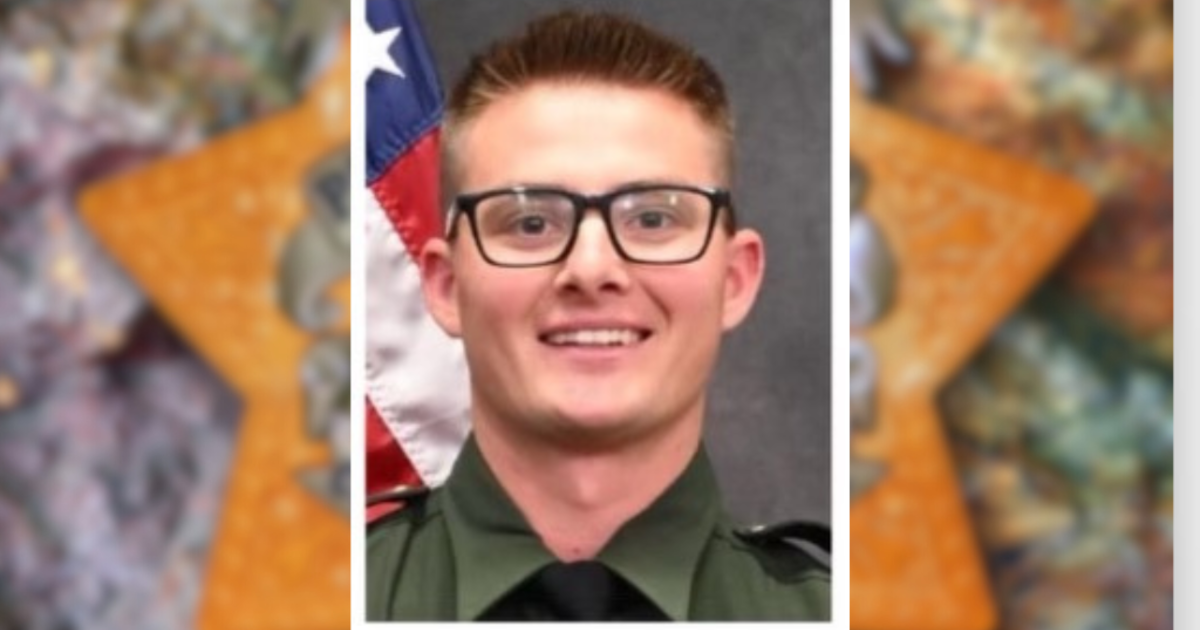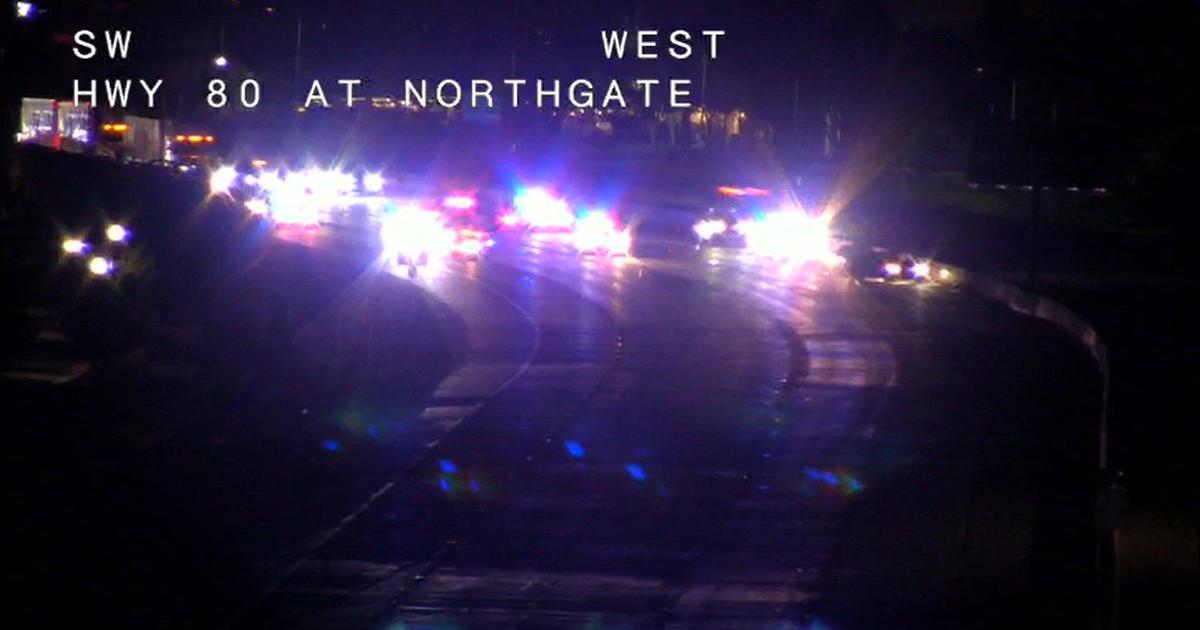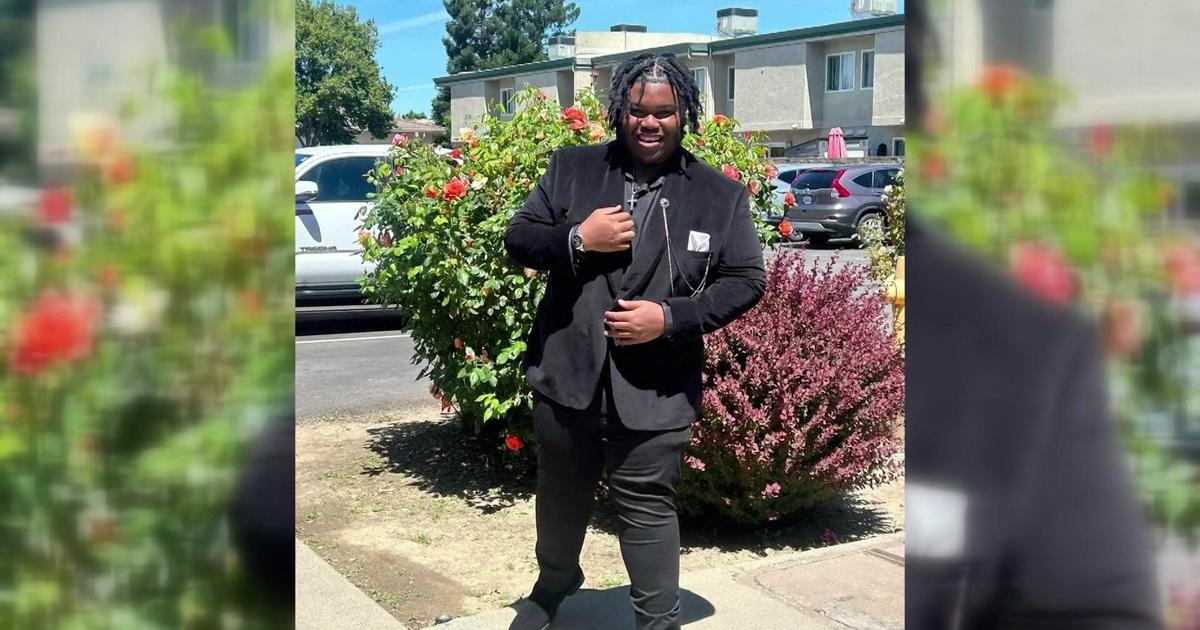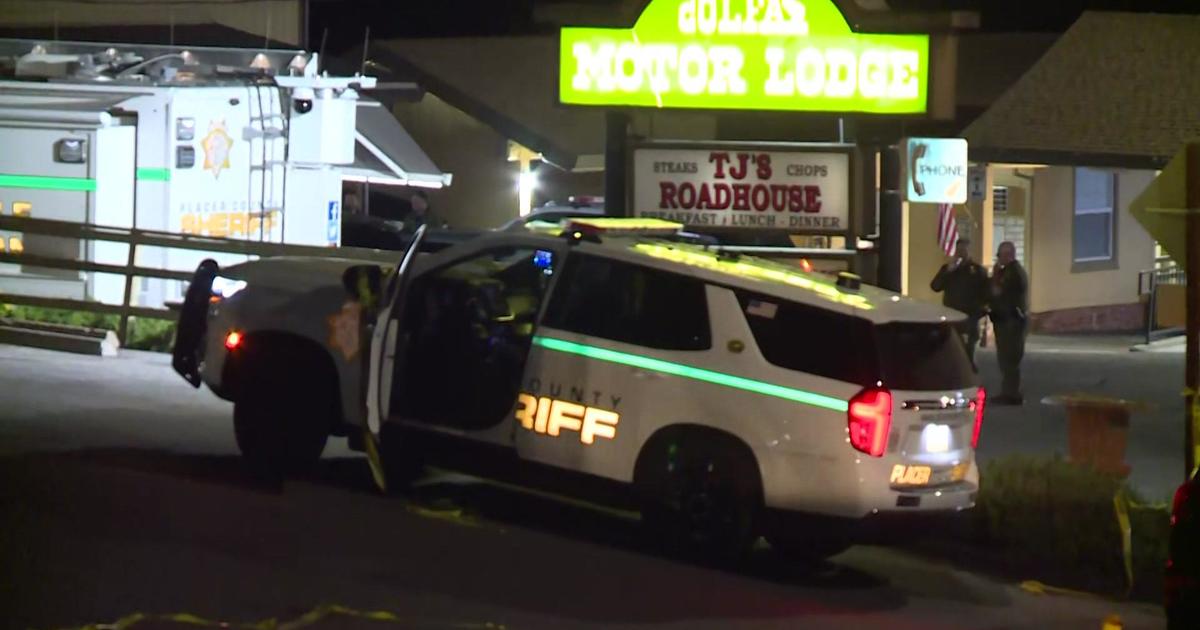What is law enforcement hiding? How CHP's Roseville park shootout could set a concerning police-shooting precedent.
In response to CBS Sacramento's ongoing investigation into the deadly Mahany Park shootout in Roseville, the California Highway Patrol (CHP) finally released a portion of never-before-seen dash-camera video. For months, the CHP claimed dashcam video from the shootout didn't exist.
Meanwhile, the Roseville Police Department is still refusing to release more than 39 seconds of its body camera video from the shootout and the Placer County Sheriff's Department is refusing to release the hostage's autopsy report, which could confirm that the suspect shot the hostage and not officers.
The lack of transparency has many asking -- What are they hiding? CBS Sacramento is getting answers on the public's right to see records related to police shootings and the concerning law enforcement claims.
The Backstory
He had a history of violence, running from cops, and escaping from hospitals. Yet, CHP chose to confront an armed felon at a public park surrounded by kids at day camp. An officer and hostage were shot, another hostage was killed, and children and parents were traumatized.
CHP is the Governor's police force with jurisdiction across the state, so what happened in Roseville could happen in any California city. It's been seven months since the deadly Mahany Park shootout, and we still don't have answers to basic questions about the CHP policies that led to the tragic shootout.
FAILED POLICIES: One suspect. Three agencies. Countless questions.
- PART 1 - The CHP Search Warrant: A Controversial Decision
In the first of a multi-part series, CBS Sacramento investigates the decision by the California Highway Patrol (CHP) to serve a planned, high-risk search warrant, on an armed suspect at a public park surrounded by kids at day camp, without notifying local law enforcement. A hostage was killed. Kids were traumatized. Yet, CHP remains silent.
- PART 2 - The Hidden Recordings: What Are They Hiding?
Next, CBS Sacramento investigates the public's right to see law enforcement records and recordings related to police shootings. The Roseville Police Department won't release most of its body camera video, CHP initially denied the existence of its dash-camera recordings, and Placer County won't release the hostage's coroner's report. They are all public records under California law which has many asking, "What are they hiding?"
- PART 3 - The Placer County Escape: A Lesson In Transparency
Finally, we examine the suspect's escape from the Placer County Sheriff's custody and the agency's notably swift and transparent response.
39 Seconds
Thirty-nine seconds, that's all the video law enforcement has been willing to release from a multi-agency officer-involved shoot-out at a public park, surrounded by city-run day camps.
An officer and a hostage were shot, another hostage was killed, and a community was left traumatized.
For seven months we've been fighting for answers and access to the full video from that day.
The shootout began with a controversial decision by the CHP to serve a planned, high-risk search warrant to an armed felon at a public park during the peak of spring break without notifying local police.
It ended with local law enforcement coming to CHP's rescue.
The video we do have appears to show officers shooting at each other.
But Roseville PD has refused to release more than 39 seconds of its body camera video and, for months, CHP has claimed they didn't have any dash camera video from the shootout.
In response to a Public Records Act Request from CBS Sacramento in June, the CHP "Office of Risk Management" claimed:
"After a diligent and thorough search, in accordance with Government Code section 7923.625, personnel assigned to the Public Records Unit... have determined (CHP does) not possess responsive records."
Turned out, CHP did have responsive records.
CHP has not yet provided CBS Sacramento with an explanation for their initial denial. However, the agency did finally provide a redacted excerpt from, what appears to be, a two-hour dash-camera recording from the one marked CHP cruiser at Mahany Park when officers attempted to serve the search warrant.
The 25-minute excerpt, which CBS Sacramento exclusively obtained Monday, appears to begin just after the suspect allegedly fired the initial shots at a CHP officer. You can see at least four undercover officers running toward the batting cages, where we now know children were diving for cover from the crossfire.
The CHP officers weren't wearing body cameras; however, the Roseville PD officers were.
That agency is only willing to release 39 seconds of video of the so-called "critical incident," which appears to show officers shooting at each other but provides little transparency or context of what went wrong that day -- the risk to the public, the hostages, and officers.
Standard Law Enforcement Practice
State law requires agencies to release any recording "that relates to" an officer-involved shooting, or "critical incident."
Per the Los Angeles Police Department's policy, which is based on state law, they release "video (of) the actions and events leading up to and including the critical incident."
San Francisco PD has a similar policy and hosts its videos on the city's YouTube channel.
While some agencies release edited versions of videos, it's standard practice to release the video leading up to the shooting to provide context.
However, Roseville PD is now attempting to rewrite state law.
Re-Writing State Law
Instead of releasing recordings that "depict an incident involving the discharge of a firearm." They claim they only have to release recordings "of the discharge of the firearm."
Roseville PD is the first agency, that we're aware of, to ever make that argument.
"The video is public property," said San Francisco Assemblymember Phil Ting.
Ting wrote the law in question. He stresses that the public pays for the police cameras, and the servers that they store the video on, so the video belongs to the public.
"They're arguing that, under your legislation, they're only required to release the 39 seconds when the bullets actually left the gun, CBS Sacramento Investigative reporter Julie Watts explained to Ting in a recent interview. "When you drafted this legislation, did you intend to define the critical incident as only the moments of the discharge of a firearm?" she asked.
"Absolutely not," Ting answered. "Because if that was the case, that would have been written into law. In order to provide transparency, you need to know what's happening leading up to the confrontation."
A Concerning Precedent
It's very likely the full body cam video will show that Roseville PD acted heroically and stopped an armed suspect from injuring anyone else. But the fact that the agency is refusing to release the full video, and attempting to rewrite state law, could set a bad precedent for all future police shootings.
In California, if an agency refuses to release public records, the only option is to sue.
"I imagine there will be a court decision on this," said law enforcement consultant John McGinnis.
The former Sacramento County Sheriff says he supports police transparency, but he also supports Roseville PD in this case.
"Roseville PD is saying, we're going to make you sue us to get this video and taxpayers are going to have to foot the bill," Watts explained in a recent interview. "Is that fair?" she asked.
"I don't know why they're withholding it, but if they believe they're on solid ground... I say stand on principle and let another branch of government make that decision," McGinnis said.
McGinnis says he believes the primary purpose of bodycam video should be for evidence in a criminal trial and not public information.
However, experts say, that when it comes to police shootings, California law is clear.
"The law must be construed broadly in favor of disclosure," said David Loy, legal director of the First Amendment Coalition.
When in doubt, he says the state constitution requires agencies to err on the side of disclosure.
Law enforcement can blur or redact parts of the video to protect victims' privacy, but they can only delay releasing the video more than 45 days if the agency can demonstrate it would "substantially interfere with an ongoing investigation."
However, Roseville PD isn't arguing that.
"They arrested the person at the scene, I can't imagine any way in which disclosing the video would substantially interfere with an investigation," said Loy.
It's now been seven months since the Mahany Park shootout.
"When the public does not get the full story, it begins to look like a cover-up," Loy stressed.
What Are They Hiding?
According to Roseville PD, officers fired roughly 30 rounds at the park that day -- mostly by the CHP.
They stated that detectives counted 15-20 rounds fired by Abril, 15-25 rounds fired back by CHP, and another six rounds fired by Roseville PD.
Roseville PD added that it is "confident suspect Eric Abril fatally shot the deceased victim and shot the second victim who survived."
But CHP has yet to release its full dash camera video, Roseville won't release its full body camera or drone video, and the Placer County Sheriff won't release the victim's autopsy report, which confirm that the suspect shot the hostage and not the officers.
Autopsy reports are public records when they are related to a police shooting.
"If you believe that you acted heroically or appropriately, Why are you hiding this?" Loy asked.
Regaining Public Trust
Notably, in this case, the public's trust was first violated by the controversial CHP decision to serve the high-risk warrant at the park that day, which resulted in a traumatized community and an innocent life lost.
The public's trust was violated again when the suspect escaped from custody, prompting a multi-day manhunt, putting the public at risk again and re-traumatizing the community.
Now, many believe that full transparency is the only way to regain the public's trust.
To Be Continued...
Next week, in part three of our series, we investigate suspect Eric Abril's escape from a local hospital, highlighting the one agency that has been transparent and how they made great strides toward regaining the public's trust after a very public blunder.




